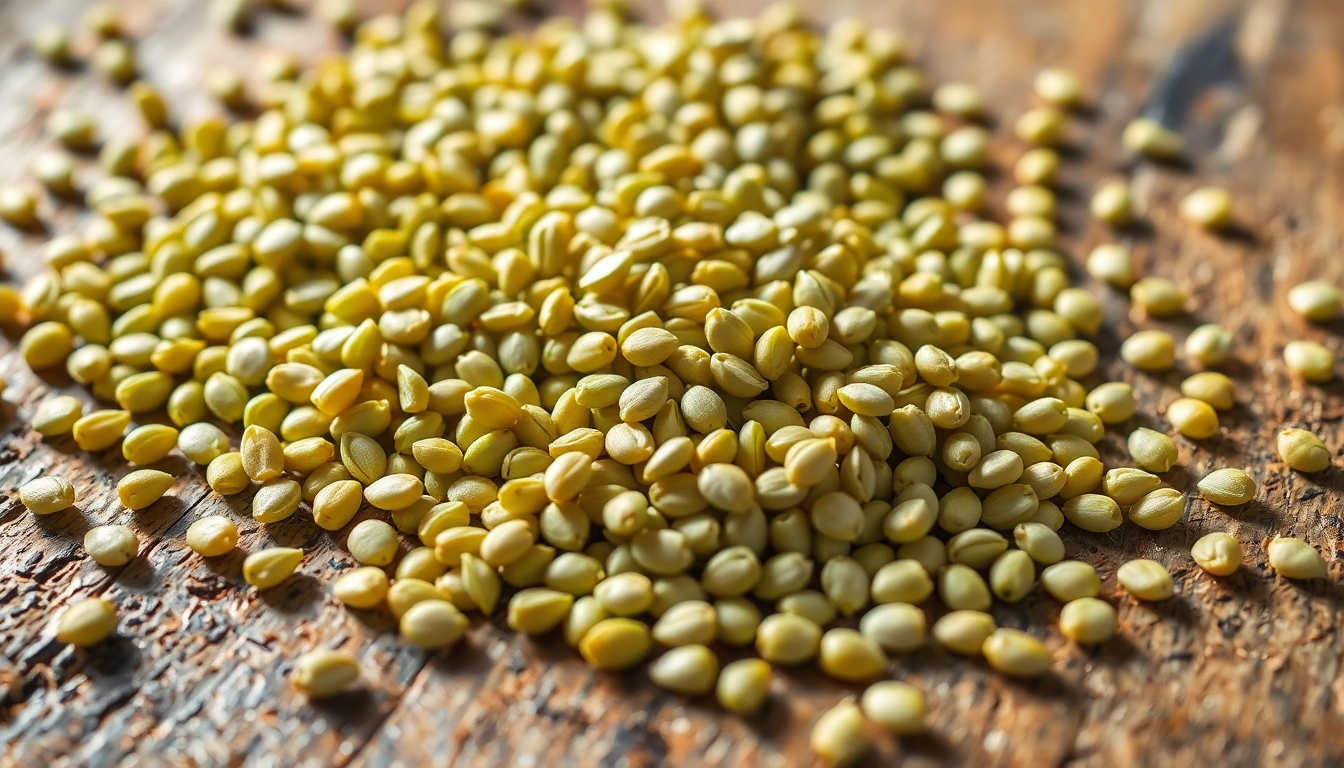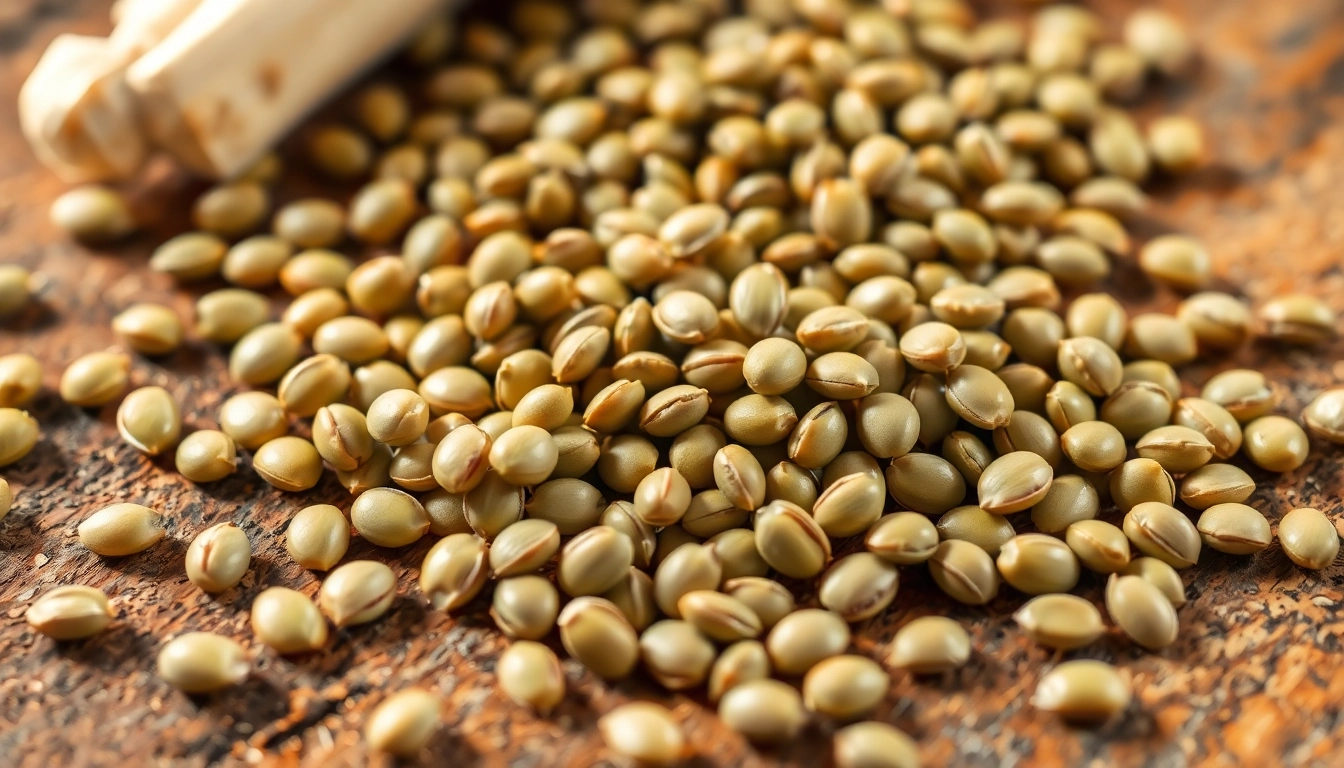Understanding the Fennel Seeds Market: Trends and Insights
Fennel seeds have long been an integral part of global culinary traditions, particularly in Indian, Mediterranean, Middle Eastern, and Asian cuisines. Known for their aromatic flavor and numerous health benefits, they are increasingly demanded across the world, making them a vital commodity for spice manufacturers and exporters. The global demand for Fennel Seeds continues to rise, driven by consumer preferences for natural, organic, and health-promoting ingredients. This demand is reflected in evolving consumption patterns where consumers are shifting towards herbal and spice-based remedies as supplementary wellness solutions, as well as culinary reasons.
In regions like Europe and North America, consumers are embracing fennel seeds not only for their flavor but also for their medicinal qualities, including digestive health and anti-inflammatory properties. Meanwhile, in traditional markets such as India and the Middle East, fennel seeds are essential in daily cooking and traditional medicine. As a result, sourcing regions such as India, Egypt, Turkey, and parts of Europe have become key hubs for high-quality fennel seed production, adhering to strict quality standards that ensure safety and flavor consistency.
Emerging markets, especially in Southeast Asia and Africa, provide additional growth opportunities. Increasing urbanization and spending power are enabling consumers to access diverse culinary experiences, expanding the reach of fennel seed-based products. Furthermore, the global organic food industry has played a pivotal role, with organic fennel seeds gaining prominence due to consumer demand for chemical-free, eco-friendly options. Leading industry expos, such as the Biofach trade fair, serve as vital platforms for global companies to showcase organic fennel seed products, establish new trade relationships, and explore innovative processing and packaging methods.
Best Practices for Sourcing and Quality Assurance of Fennel Seeds
Selection criteria for premium fennel seeds
To ensure premium quality fennel seeds, sourcing begins with stringent selection criteria. High-quality fennel seeds should have a uniform size, aromatic fragrance, and a clean appearance without any foreign matter or broken seeds. Indicators of freshness include a vibrant color and a spicy, sweet aroma. It is crucial to assess the moisture content, as low moisture levels inhibit mold growth and prolong shelf life. Additionally, seeds should be free from pests, dirt, and chemical residues, which can compromise safety and flavor.
Certification and safety compliance standards
Certification plays a vital role in establishing credibility and maintaining high safety standards. Leading certifications include ISO, HACCP, Organic, and Food Safety Management Systems, which ensure that fennel seed processing adheres to hygienic practices. Exporters must comply with various international standards set by organizations like the FDA (USA), EFSA (Europe), or FSSAI (India). Conducting regular safety audits, contamination testing, and residue analysis are essential to guarantee that products meet international safety standards and are suitable for global markets.
Building reliable supplier relationships
Developing reliable supplier partnerships involves transparency, consistent quality checks, and fair trade practices. Establish long-term collaborations by engaging with farmers and cooperatives directly, ensuring traceability from farm to export. Regular training and capacity-building initiatives with suppliers can improve yield quality and adherence to safety standards. Using technology such as blockchain can further enhance traceability, providing consumers with transparency about the origin of their fennel seeds. Strong relationships also facilitate access to premium harvests, critical for premium product offerings.
Effective Packaging and Branding Strategies for Fennel Seeds
Designing attractive labels that emphasize freshness
Packaging is a key differentiator in a competitive market. Labels should prominently highlight attributes such as “100% Natural,” “Organic,” and “Freshly Milled.” Including clear information about the origin and certification can build consumer trust. Incorporating eye-catching visuals and an easy-to-read font enhances shelf appeal. Modern packaging designs often feature transparent windows to showcase the quality, along with freshness seals or vacuum packing to preserve flavor and aroma.
Choosing eco-friendly packaging options
Environmental sustainability is increasingly influencing consumer choices. Opting for biodegradable, recyclable, or reusable packaging minimizes environmental impact and aligns with eco-conscious branding. Materials such as kraft paper, biodegradable plastics, and paper-based pouches are popular choices. Brands that communicate their eco-friendly initiatives through labels and social media can strengthen consumer loyalty and differentiate themselves in the marketplace.
Consumer education through branding and labelling
Educating consumers about the benefits and uses of fennel seeds enhances perceived value and encourages purchase. Informative labels can include nutritional benefits, usage tips, and traditional medicinal qualities. Creating engaging content via packaging—like QR codes linking to recipes or health tips—can improve customer engagement. A strong brand story emphasizing quality, authenticity, and sustainability fosters emotional connections with consumers, converting buyers into brand advocates.
Marketing and Selling Fennel Seeds: Channel Optimization
Online platforms and digital marketing tactics
The digital landscape offers unparalleled opportunities to reach global audiences. Optimizing product listings on e-commerce platforms like Amazon, Alibaba, and regional online grocery stores is essential. Leveraging SEO strategies, including targeted keywords like “Fennel Seeds,” enhances visibility. Content marketing—such as blogs, recipes, and health benefits—drives engagement. Social media campaigns showcasing usage ideas and customer testimonials can build brand loyalty. Paid advertising, influencer collaborations, and organic content together strengthen online presence.
Wholesale vs. retail distribution approaches
Successfully penetrating different market segments requires distinct strategies. Wholesale channels serve distributors, supermarkets, and horeca (hotel, restaurant, catering) clients, demanding bulk packaging and consistent quality. Retail distribution emphasizes branding, packaging appeal, and consumer education. For retail success, point-of-sale displays, sampling, and promotional offers are effective. Combining both approaches ensures market coverage while maintaining brand integrity across channels.
Participating in trade shows and industry expos
Trade shows, both domestic and international—such as the Biofach fair—are prime opportunities for branding, networking, and market exploration. Displaying samples, offering tasting sessions, and engaging in direct conversations with buyers build credibility. Preparing professional marketing materials, certifications, and product datasheets enhances impact. Post-event follow-ups are critical for converting leads. Participation in such events maintains visibility among industry leaders and positions your brand as a premium player.
Evaluating Performance and Scaling Your Fennel Seeds Business
Tracking sales metrics and customer feedback
Data-driven decision-making is essential for growth. Monitoring sales volume, revenue, and repeat purchase rates provides insights into product performance. Collecting customer feedback through surveys, online reviews, and direct communication highlights areas for improvement. Analyzing regional performance can identify high-growth markets, informing expansion strategies. Leveraging CRM (Customer Relationship Management) systems helps cultivate customer loyalty and cross-sell complementary products like fennel seed blends or organic spice kits.
Product diversification and innovation strategies
Innovation can secure competitive advantage. Diversify offerings by introducing flavored fennel seed variants, organic certifications, or value-added products such as fennel seed powders and blends. Leveraging consumer trends like health foods, weight management, and natural remedies can open new markets. Developing unique packaging formats like single-use sachets or ready-to-use spice mixes caters to convenience-focused consumers. Incorporating sustainability initiatives, such as biodegradable packaging and fair-trade sourcing, further differentiates your brand.
Expanding into new markets and partnerships
Global expansion requires thorough market research and strategic alliances. Identify emerging markets with rising demand for organic and natural spices. Establish partnerships with local distributors, retailers, and food manufacturers. Participating in international trade fairs broadens exposure. Tailor marketing and packaging to meet local preferences and regulations. Building on certification standards like Organic or Non-GMO assures quality assurance and facilitates smooth market entry.

